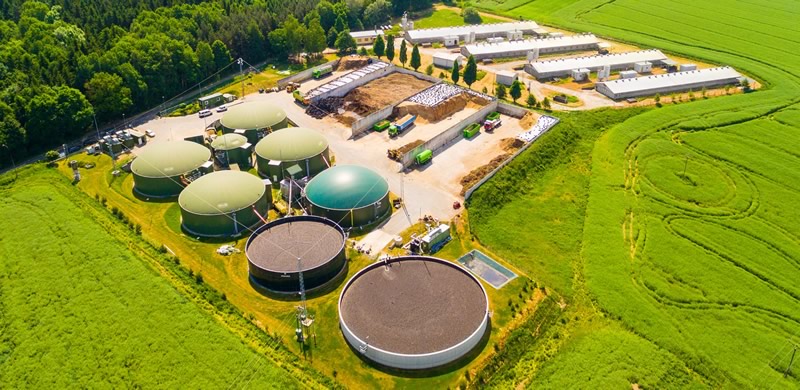Coalition Presses GHG Protocol to Recognize Biogas and RNG in Corporate Emissions Reporting

- Eight-member coalition urges the Greenhouse Gas Protocol to allow market instruments for biogas and renewable natural gas in Scope 1 reporting.
- Without interim recognition, corporate demand for low-carbon gases and investment in new projects risks stagnation.
- Recommendations could bridge the gap until the GHG Protocol’s revised guidance is finalized in 2028.
A push from Washington for biogas recognition
A coalition of biogas and renewable gas advocates is pressing for immediate changes to the Greenhouse Gas Protocol (GHG Protocol), the world’s most widely used emissions accounting framework. The “Let Green Gas Count” coalition, launched in February 2025 and led by the American Biogas Council (ABC) and the World Biogas Association (WBA), released a set of recommendations urging recognition of market instruments for biogas and renewable natural gas (RNG) in corporate greenhouse gas inventories.
At issue is how Scope 1 emissions — direct emissions from owned or controlled sources — can be reported when companies replace conventional natural gas with certified renewable alternatives. The coalition argues that without interim clarity, corporate decarbonization strategies will remain constrained, and capital for new projects will be delayed.
Interim guidance until 2028
The GHG Protocol is currently undergoing a multi-year update, with new guidance expected in 2028. Until then, companies lack clear rules on how to account for the purchase and use of green gases. The coalition’s proposal seeks to fill that gap by allowing the use of certified instruments, such as green gas certificates, in emissions reporting.
Patrick Serfass, executive director of the ABC, said the absence of recognition has become a barrier to market growth. “Biogas, and renewable natural gas made from biogas, are two of the lowest carbon intensity energy sources available. But investment in projects that produce these fuels is currently thwarted by the lack of clear guidance on market instruments that recognize their carbon intensity,” he said. The recommendations, he added, would “unlock new investment, accelerate project development, and ensure renewable natural gas and biogas can be recognized for their full, science-based climate benefits.”

Industry frustration over lost opportunities
For producers, the lack of explicit GHG Protocol guidance is more than an accounting gap. It has slowed the growth of a sector that turns organic waste into energy, prevents methane emissions, and offers a route to decarbonize heavy industry, transport, and other hard-to-abate sectors.
Charlotte Morton OBE, chief executive of the WBA, said: “The GHG Protocol’s lack of guidance on the use of market instruments has significantly slowed the growth of the biomethane industry, which prevents particularly harmful methane emissions from organic wastes and is one of the few options for decarbonising hard-to-decarbonise sectors. Both are critical to mitigate the current and worsening climate crisis. We mustn’t waste any more time.”

RELATED ARTICLE: EU Commission Publishes FAQ on Implementing New Corporate Sustainability Reporting Rules
Implications for corporates and investors
For C-suite leaders and sustainability officers, the debate goes beyond technical reporting. Companies increasingly face investor scrutiny and regulatory requirements to show credible, transparent emissions reductions. Clearer treatment of renewable gases would allow corporates to demonstrate progress in decarbonization strategies, attract green finance, and avoid accusations of overstating climate gains.
Investors, too, are watching the outcome closely. Without assurance that biogas purchases will be counted, financing for new facilities remains risky. The coalition’s recommendations seek to de-risk that uncertainty, giving markets confidence to scale projects that could contribute to national and corporate net-zero pathways.
A global framework under pressure
The GHG Protocol, administered by the World Resources Institute and the World Business Council for Sustainable Development, has long shaped the standards for climate reporting across supply chains. Pressure to modernize its rules reflects a wider shift in climate governance, where demand for precision in accounting is intensifying.
If the recommendations are adopted, they could provide a bridge for corporates looking to expand renewable gas use, while influencing policy debates in the U.S., Europe, and beyond. For now, the coalition is betting that interim clarity will spur both confidence and capital, accelerating one of the few commercially available solutions for cutting methane emissions at scale.
Follow ESG News on LinkedIn











